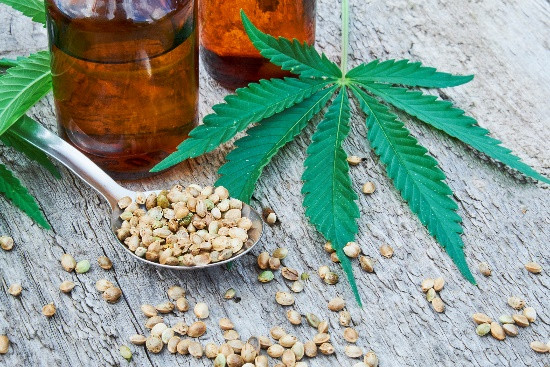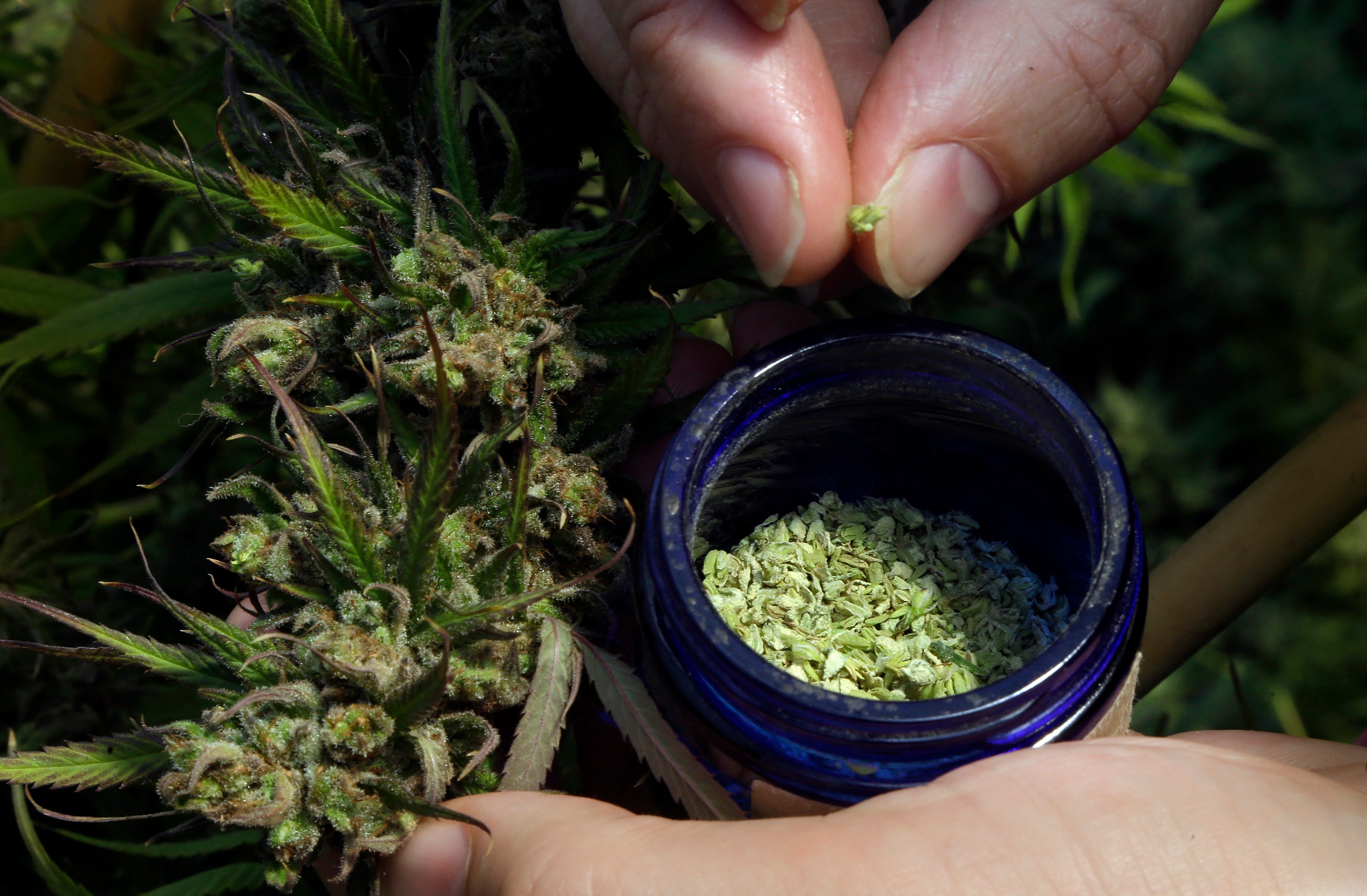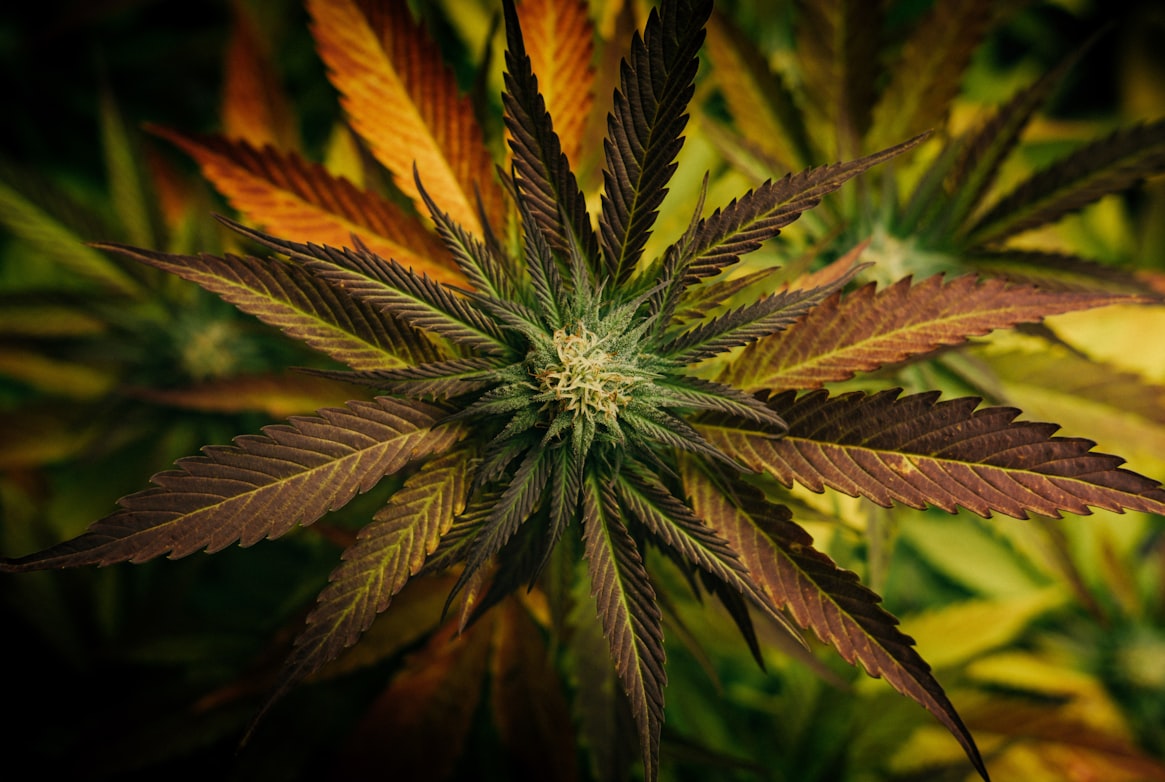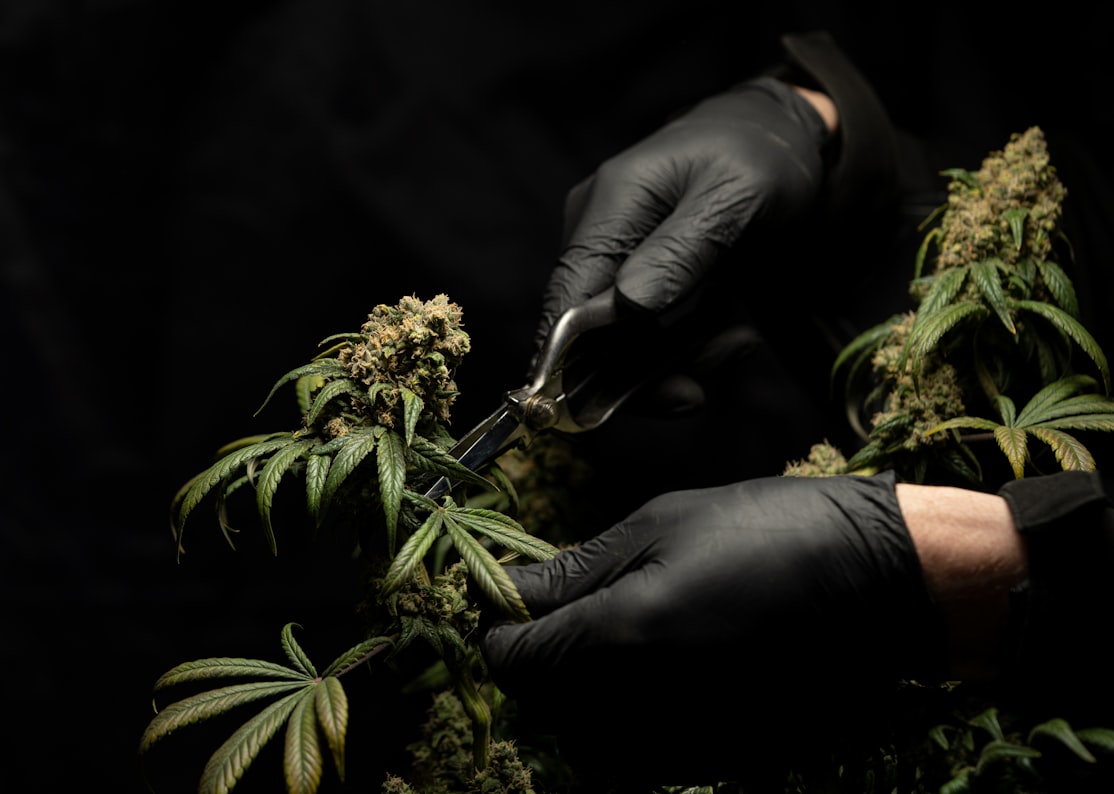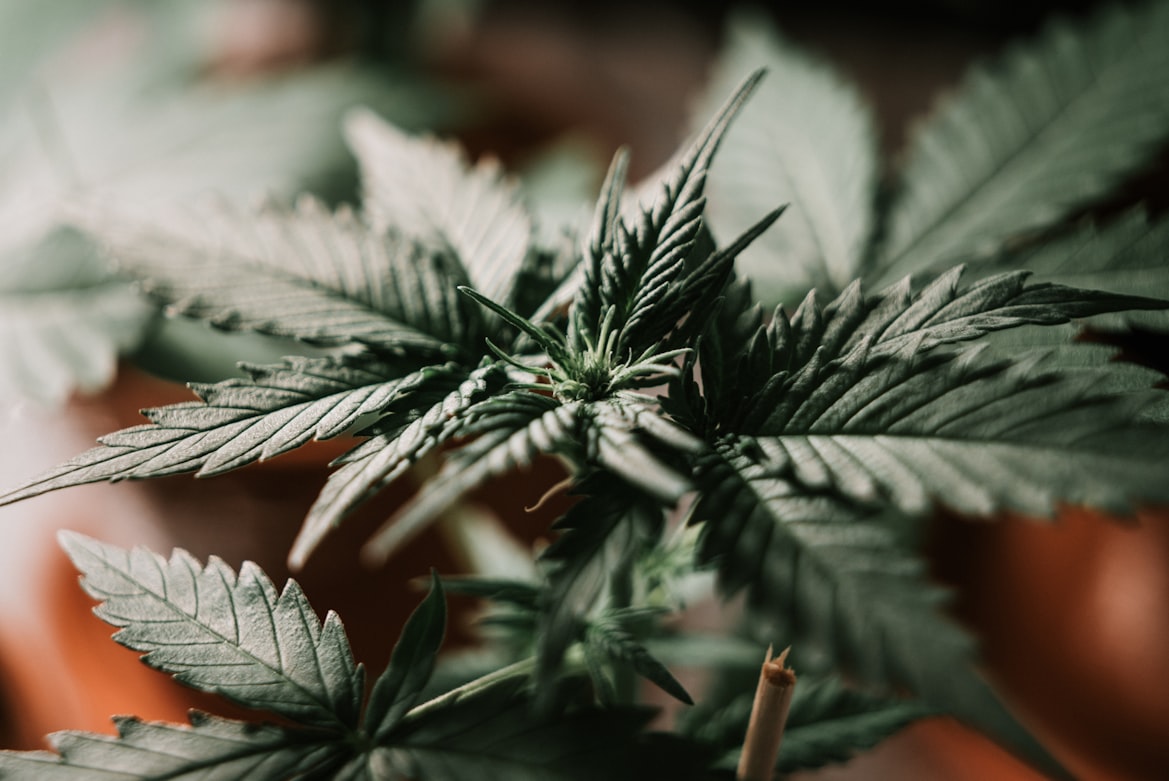Medical Benefits Of CBD

CBD is getting more popular over time for its numerous health benefits. With time, CBD founded a firm ground and a new platform of herbal and natural treatments for its exceptional health healing soothing qualities and anti-inflammatory properties without any severe side effects.
Being extracted from the flowers and buds of the hemp plant, CBD is getting pressed into oil and is being sought-after to treat and even prevent a wide array of health issues in the states. CBD oil is more effective and more natural than most non-steroidal anti-inflammatory drugs (NSAIDs).
Now, you might ask – What are the medical benefits of CBD? Or, what are the benefits of CBD oil?
We have your answers right here with proper explanations. Read through this article, know all the amazing medical benefits of CBD and CBD oil, along with its legal status. This article aims at helping you in this case.
What Is CBD?
CBD is the short name of cannabidiol, a naturally occurring cannabinoid derived from the cannabis plant. From Indica and Sativa, both marijuana and CBD can be derived. But CBD hemp is only derived from Cannabis Sativa. It is a chemical compound of Cannabis Sativa plants.
CBD holds a molecular structure of 30 hydrogen atoms, 2 oxygen atoms, and 21 carbon atoms (C21H30O2). Dr. Mechoulam first identified it by walking in the same way as Roger Adams, the Harvard University alumni, who was the first to bring out the healing properties of a Cannabis sativa plant in 1940.
CBD is the most well-known one of over one hundred cannabinoids identified in hemp plants for its soothing effects.
However, unlike the full cannabis plant, CBD does not contain THC (Tetrahydrocannabinol), which is another famous compound responsible for the psychoactive effects of causing “high” in humans. THC has a similar chemical structure that comes from the same group of marijuana plants.
CBD products are available having either full-spectrum, broad-spectrum, or isolate cannabidiol.
Some Common Forms Of CBD Are
- CBD oil: CBD oil is a favorite form of CBD among users. CBD extract mix into an oil carrier, for example- coconut oil, and forms a tincture. The tincture is easy to take orally or to apply to the body.
- Edibles: CBD can be marinated into edible products, like chocolate, gummy candy, and other candies and foods.
- Capsules, pills, and sprays: CBD can also be ingested as oral spray, capsules or Pills.
- Creams and lotions: Some CBD-infused lotions and creams are used externally on the body skin.
- Vaping: It is the quickest way to get the effects of CBD by taking in vaporized CBD oil with an e-cigarette.
How Does CBD work?
Inhaled CBD gets into the bloodstream the fastest, while edibles take a little longer to enter your system. CBD works by interacting with your body through the endocannabinoid system (ECS).
Endocannabinoids, receptors, and enzymes create the ECS. Interacting with the ECS, CBD reconstitutes your body. CBD inspires the ECS receptors and gives the body permission to create its own cannabinoids.
All cannabinoids grow effects in the body by interacting with cannabinoid receptors, which take part in the endocannabinoid system. The body creates two receptors- CB1 and CB2.
CB1 receptors are present everywhere in the body, especially in the brain. They coordinate pain, emotion, mood, movement, appetite, memories, thinking, and other functions.
CB2 receptors are more available in the immune system. There they affect inflammation and pain.
Amazing Benefits Of CBD
What are the benefits of CBD? What are the benefits of CBD oil? All your answers are right below.
There are amazing health benefits of CBD. Unlike THC, CBD has no intoxicating or psychoactive effects. It can be used to treat different health conditions like chronic pain, sore pain and inflammation, epilepsy, migraines, autoimmune diseases, depression, anxiety, and many other symptoms together with skin conditions. Using CBD products is also very safe because of their few to no side effects. According to a 2018 study, CBD oil or CBD is used for:
- Chronic pain
- Arthritis or joint pain
- Sleep disorder
- Anxiety and depression
- Migraine
- Cluster and other headaches
- Nausea
- Cancer
- Allergies or asthma
- Post-traumatic stress disorder (PTSD)
- Epilepsy and other seizure disorders
- Lung conditions
- Multiple sclerosis (MS)
- Parkinson’s disease
- Alzheimer’s disease
CBD is very often mixed with an inert carrier oil like hemp seed oil for consumption or external uses as topical CBD products after it is extracted from the cannabis Sativa plant in oil form.
Some of The Many Benefits Of CBD
Pain Management
CBD is the best effective in pain management. All types of CBD products- CBD Oils, CBD topicals or CBD oral are designed and used mostly for acute or chronic pain relief. CBD can help control pain through a variety of biological processes in the body. It works as an anti-inflammatory, antioxidant, and analgesic.
CBD Oil is great for alleviating different types of body pain, especially muscle pain, joint pain, and arthritis. CBD is also very effective for managing sore pain and inflammation.
These natural endocannabinoids are neurotransmitters that combine with cannabinoid receptors in the body’s nervous system. CBD helps relieve chronic pain by impacting the activity of this receptor and thus reduces inflammation by interacting with neurotransmitters. Currently, research is going on to find out the extent to which CBD can help with conditions – arthritis and multiple sclerosis.
Animal studies have found CBD to have a positive effect on serotonin levels in the brain. Low levels of serotonin are supposed to play a vital role in mood and pain management.
Another research launched on both animals and humans has disclosed that CBD has anti-inflammatory effects and can relieve pain as well.
Anxiety and Depression
The two common mental health conditions- depression and anxiety disorders- have some long-lasting effects on human health, affecting social life, working ability, and well-being. But many people don’t like pharmaceutical drugs as many of the drugs have severe side effects like sleeplessness, mood swings, sexual dysfunction, and more.
They prefer CBD treatment as the benefits of CBD in treating anxiety and depression are more promising with less or no side effects. Research from 2014 found CBD’s positive interaction with serotonin receptors in the brain. Serotonin has an impact on a person’s emotional state and feelings of well-being or happiness. So this is an important therapy for people with depression to keep serotonin levels balanced.
CBD can also manage the anxiety of people living with chronic pain. But you have to choose the right product from reputed brands.
Authors of a 2015 review had previously stated that CBD might help alleviate anxiety-related behaviors in people with the following conditions:
- Post-traumatic stress disorder (PTSD)
- General anxiety disorder (GAD)
- Panic disorder
- Social anxiety disorder
- Obsessive-compulsive disorder (OCD)
Though CBD has many good effects for treating depression and anxiety disorders, more research is needed.
Cancer-Related Symptoms
The increasing research supports the efficacy of CBD to treat some symptoms involved in cancer treatment, like nausea and pain. In a recent study, the undergoing chemotherapy patients used CBD oil and found it effective in reducing the side effects of chemo, especially the feelings of nausea. The majority of those patients expressed that CBD helped to lessen their discomfort and pain.
In 2007, Canada approved the use of medicine- Sativex, an oromucosal (absorbed in the lining of the mouth) spray with equal proportions of THC and CBD, for treating cancer pains other medications failed to respond to.
Authors of a 2012 review detected some evidence that CBD can assist in preventing the spread of some types of cancer. The compound seems to restrain the growth of cancer cells and boosts their destruction.
Epilepsy
The benefits of CBD are proven positive in the treatment of certain types of epilepsy. The first FDA-approved drug was Epidiolex, containing CBD. Epidiolex is a plant-based formulation of CBD. It was released on the market in June 2018 to treat two different types of epilepsy named Dravet syndrome and Lennox-Gastaut syndrome. The FDA approved the treatment for patients as young as two years old.
In addition to conventional epilepsy medications, CBD has been found effective for other forms of treatment-resistant epilepsy. Studies also found its success in decreasing the frequency of seizures by almost 44% in most epileptic patients.
Addiction Management and Treatment
Experts state that CBD can help people with addiction by alleviating activation of the amygdala, a brain area that is involved in addiction- cravings for drugs.
Cravings for drugs generally occur by manifestation of a certain cue. So, reducing the cravings during cues can abstain people from heroin or drugs. A study published in the American Journal of Psychiatry found that CBD is effective in lowering cravings and anxiety in people with heroin use disorder.
In a 2015 review of studies published in Substance Abuse, scientists with the University of Montreal concluded that CBD is promising in managing and treating people with opioid, cocaine, or psychostimulant addiction.
CBD is positive in reducing drug-seeking behaviors in users of cocaine, methamphetamine, and other
psychostimulant drugs. CBD may also help in treating cannabis and nicotine addiction.
Inflammatory Skin Conditions
Some skin conditions may improve with CBD treatment. They are
- Acne
- Atopic dermatitis
- Psoriasis
- Itchy skin
- Skin cancer
- Pain
Research says that topical use of CBD decreases inflammation in psoriasis and other inflammatory skin diseases.
A 2014 study detected that CBD could help reduce the production of sebum which leads to acne, partly for its anti-inflammatory effect.
Dr. Alster says that the anti-inflammatory properties of CBD are beneficial in treating dermatologic conditions like acne, psoriasis, and eczema due to the reduction of dryness, irritation, and redness. He also states that creams, oils, gels, and serums containing CBD not only moisturize and soothe the skin but are also showing encouraging results in relieving pain caused by certain skin disorders.
According to some studies, certain cannabinoids show anti-aging, anti-inflammatory, anti-itching, and anticancer properties. Some experts say that these effects take place when the CBD interacts with the endocannabinoid system found on the skin.
Neuroprotection
Some preclinical and clinical studies disclose that CBD has antioxidant and anti-inflammatory properties. Researchers suppose that these properties can provide significant neuroprotection or protection against many pathological disorders.
Several preclinical studies found CBD to produce positive effects against Parkinson’sParkinson’s disease, Alzheimer’sAlzheimer’s disease, and many sclerosis.
According to research, CBD can also help in treating complications related to epilepsy, including neurodegeneration, neuronal injury, and psychiatric diseases.
A 2012 study found that CBD can produce the same effects as certain antipsychotic drugs and provide a safe and effective treatment for schizophrenia.
Diabetic Complications
CBD can be a good natural treatment for diabetes as it helps the body regulate insulin-related hormone levels. Nearly 10% of Americans have diabetes, many of them are considering the use of cannabidiol (CBD) as an alternative treatment.
Some research found CBD to help control blood sugar, reduce stress and anxiety, and amplify cardiovascular health, all of which are important for diabetic patients. In 2016, researchers found CBD to ease the inflammation and protect against or delay the onset of type 1 diabetes.
Other studies say that CBD can probably help prevent diabetes. The endocannabinoid system controls food intake and energy use. This system is often overactive in people having overweight or type 2 diabetes.
A 2020 medical review shows that CBD might affect some factors that contribute to the development of insulin resistance and type 2 diabetes, and metabolic syndrome.
According to a 2016 study, combined with a THC-based compound, CBD helps people with type 2 diabetes in controlling their blood sugar levels. The study also indicates that CBD can help in managing some of the hormonal imbalances that contribute to the development of type 2 diabetes.
Researchers found that CBD alone can decrease the levels of resistin and increase the levels of the glucose-dependent insulinotropic peptide. Resisting causes resistance to insulin (the protein is regulating sugar levels). The insulinotropic peptide is a hormone to ensure an adequate release of insulin from digested food.
Does CBD Make You High?
Both CBD and THC are two similar chemical compounds of cannabis Sativa plants. Both of them are cannabinoids, but they don’t have the same effects.
Generally, CBD is derived from hemp, and it has absolutely no psychoactive effect of causing a “high” feeling in the body. On the other hand, THC comes from marijuana which has severe psychoactive effects, getting you high.
The isolated CBD is nonintoxicating. It doesn’t cause any “high” feeling in the body since it can’t affect psychological brain action severely. Even the full-spectrum CBD or the broad spectrum CBD is not able to get you high.
To sum it all up, CBD hemp has no psychoactive effects as the hemp plant has not more than 0.3% of THC.
Legal Status Of CBD
For the psychoactive effects, THC or marijuana is illegal. Only CBD having less than 0.3% THC is legal. The legal status of CBD in the states of the USA is complex. Hemp and hemp-derived products are legal under the Farm Bill only when their THC content is less than 0.3%. But, most CBD products are yet to get FDA approval.
Hemp-extracted CBD and CBD products with less than 0.3% THC are legal federally but still illegal under some state laws. Again, cannabis-derived CBD products are illegal federally but legal under some state laws.
In the United States, the only cannabidiol drug approved by the Food and Drug Administration was Epidiolex in 2018 for the treatment of two epilepsy disorders.
The 2018 United States Farm Bill removed hemp and hemp extracts (including CBD) from the Controlled Substances Act.
The marketing and sale of CBD products for medical use or as an ingredient in dietary supplements or produced foods remain illegal under FDA regulation as of 2021.
The Final Word
Although there is promising evidence for the future use of CBD as an analgesic, more research in humans is required to ascertain whether CBD is safe or effective for mass use.
CBD is a potent natural compound gaining popularity over time as alternative medicine, especially for pains and inflammation. Make sure you do some homework to increase your knowledge about CBD, its uses, health benefits, and legal status before you dive into this medication.

